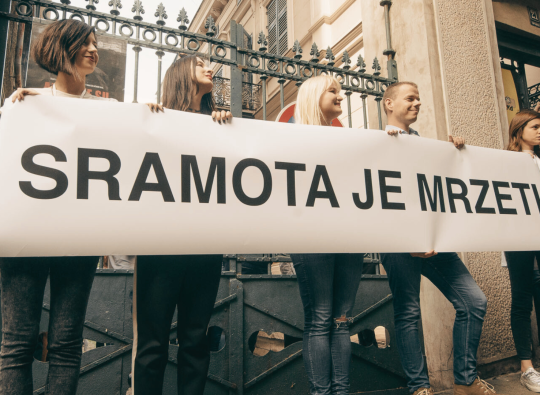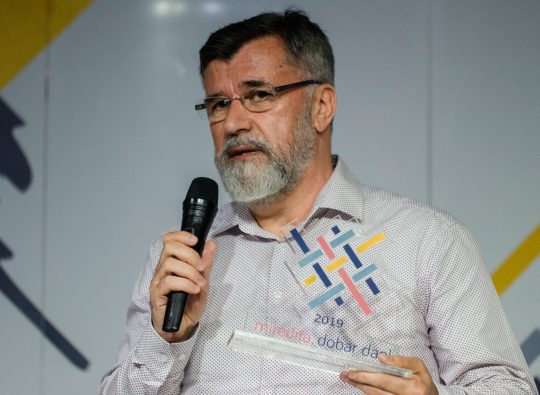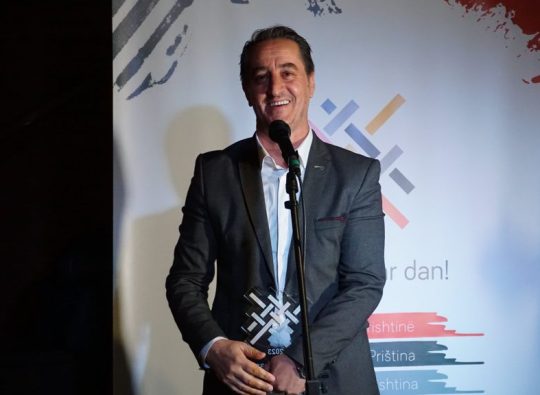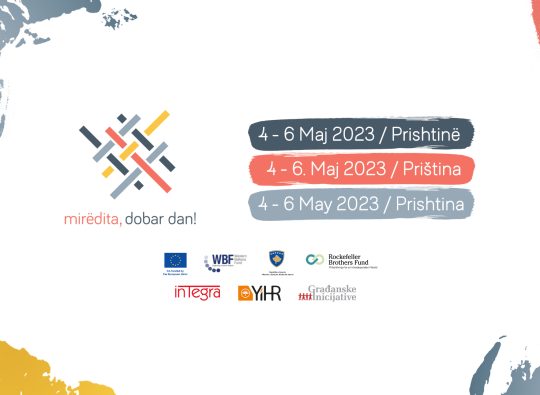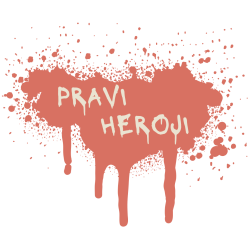Youth Initiative for Human Rights representative Fiona Jelići said at the opening ceremony at the Centre for Cultural Decontamination that young people have been left with the burden of reconciling what former generations had alienated, and that the Miredita is only one of the ways for us as society to come closer to that goal.
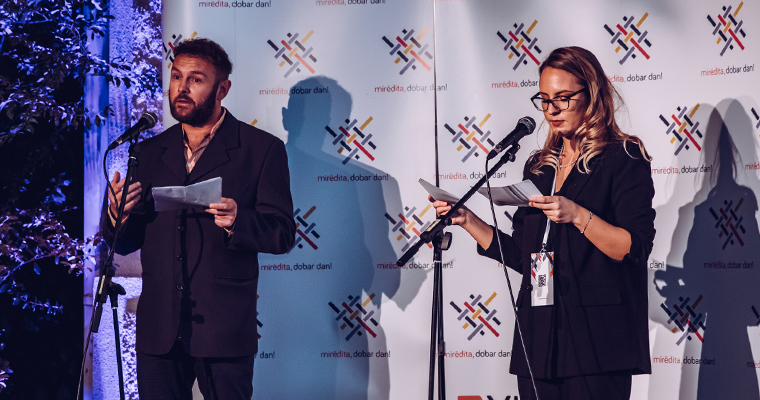
Youth Initiative for Human Rights representative Fiona Jelići said at the opening ceremony at the Centre for Cultural Decontamination that young people have been left with the burden of reconciling what former generations had alienated, and that the Miredita is only one of the ways for us as society to come closer to that goal.
“We want to be the ones to send the message of peace to the world by way of sitting at the same table with young people from Kosovo and exchanging opinions, culture, with them. The mission of the Festival has always been connecting people from Belgrade and Priština, and in the time of closed borders and social distancing – we are still the place of gathering of artists, as well as of journalists”, said Fiona Jelići.
Reacting to the protests by certain right-wing groups against the Festival, she stressed that she, as a young person, is sorry that she has to watch protests against a cultural event that promotes peace, exchange of opinions and co-operation.
“Unfortunately, years go by, but the same scenario perpetuates. On the other side of the police cordon which is here to protect us, there are the fiercest opponents of reconciliation and normalization of relations”, said Fiona Jelići and stressed that it has been enough of spreading lies and propaganda which sow hatred and destroy our two peoples.
Kushtrim Koliqi, representative of Integra from Kosovo, said that it is absurd how much we do not know about one another and that the Festival is one of the ways for people from Kosovo and Serbia to get to know one another, socialize and reconcile.
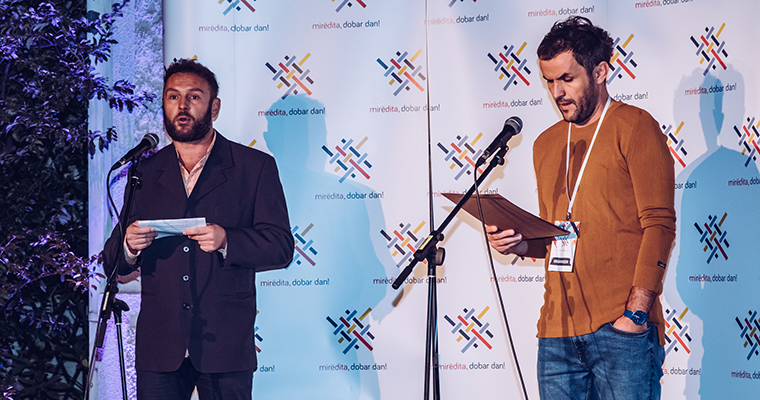
Maja Stojanović, Executive Director of the Civic Initiatives, said that the dialogue between Serbia and Kosovo is not led at the Brussels table, but only at the Miredita Festival, where all the most relevant topics for both nations have been opened.
“It is only at this festival that the issues of missing persons, war criminals and cultural heritage and Dečani Monastery are discussed, while such communication is not present among those in power. Broader public is not informed about this and it is the reason why there are the right-wing groups protesting, because they do not hear the true message of the Festival”, said Stojanović.
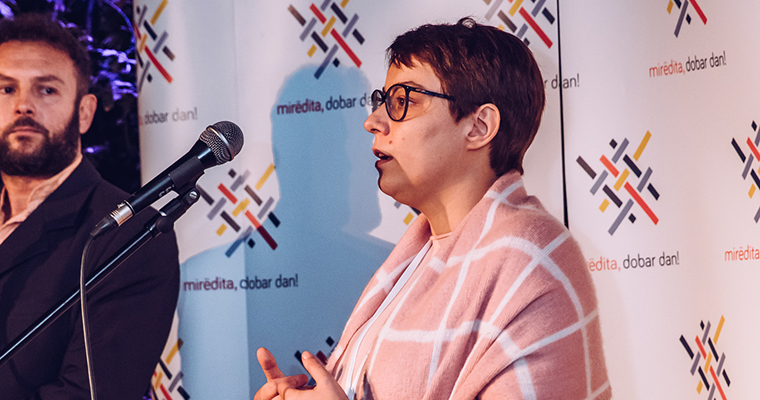
Milan Antonijević, Executive Director of the Open Society Foundation, said that the real message of the Festival is reconciliation between Serbia and Kosovo, and not what is on the other side of the cordon, because that is not the mirror of the Serbian society.
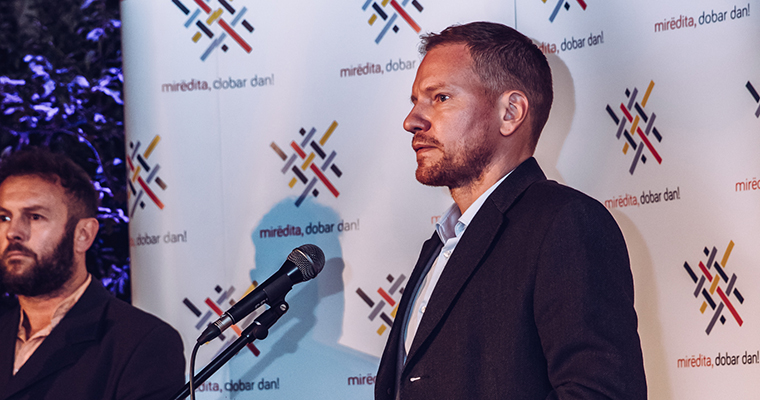
After the opening ceremony, guests of the Festival had an opportunity to see Kushtrim Koliqi’s play “I am my own Wife”, starring Adrian Morina, who, as a sole actor on the stage, plays more than 30 characters, bringing a story of hard life of a transgender person – Charlotte von Mahlsdorf, German who survived both the Nazi regime and the German Democratic Republic.
On the second day of the Festival, the visitors will have the opportunity to attend a debate “Kosovo –Memory Heritage” at the Centre for Cultural Decontamination, while the exhibition under the same title will be displayed at the “Endžio” gallery in Dobračina Street.
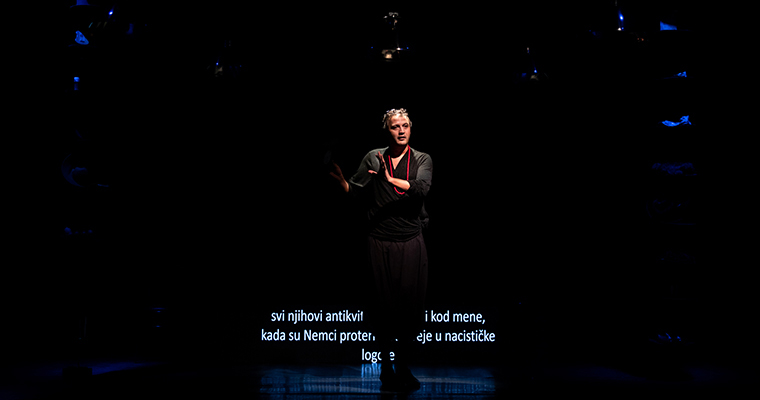
The last day of the Festival is reserved for a debate about transitional justice in Kosovo and its institutionalisation. The Festival will be closed by actor Tristan Halilaj and his reading of excerpts from his book “Richard Gere was Here”, a collection of stories originally published in Serbian language.
For the end, the audience will have the opportunity to see film “Aga’s House” scheduled for 8.30 PM at the Centre for Cultural Decontamination.
The “Miredita, dobar dan” Festival is taking place in Belgrade until October 24. In addition to the theatre play, film and book reading, key issues relating to transitional justice, the beginning of work of the Specialist Court for the Kosovo Liberation Army and how it works, and justice for non-Albanian victims will also be discussed at the Festival.
The Festival seeks to initiate change and foster a tradition of co-operation by bringing together Serbian and Kosovo social and cultural communities, and thus contribute to lasting normalisation of relations between Belgrade and Pristina.
A unique “Mirëdita, dobar dan!“ Festival that has been taking place in Belgrade since 2014, is organised by the Youth Initiative for Human Rights and Civic Initiatives from Belgrade and Integra from Priština.

